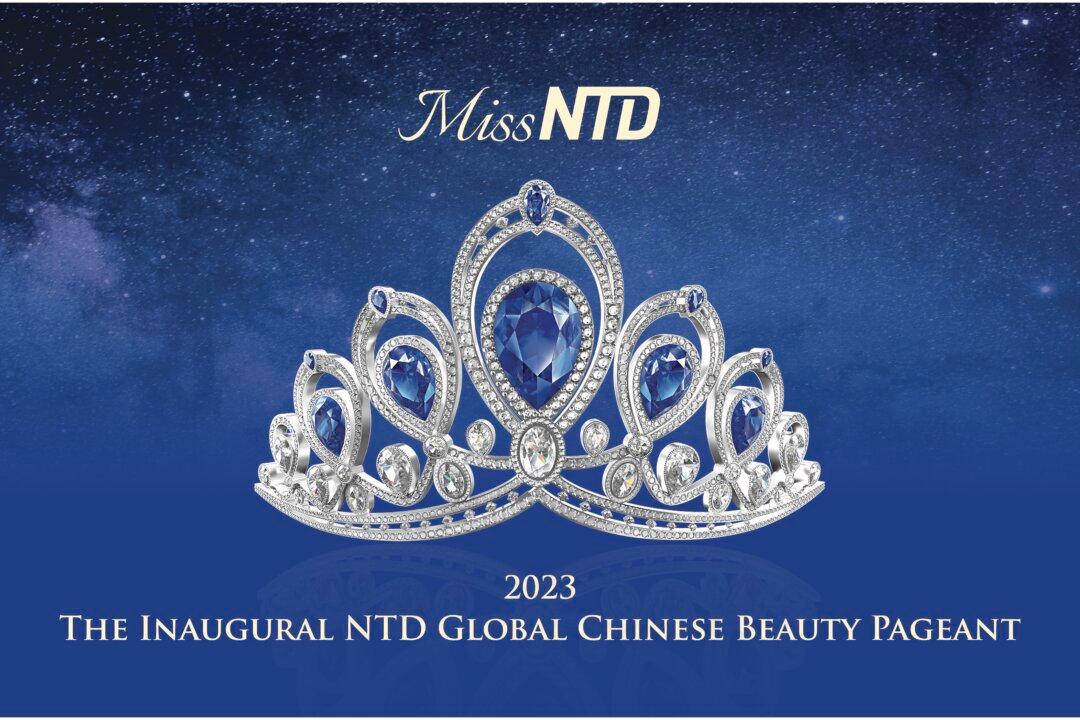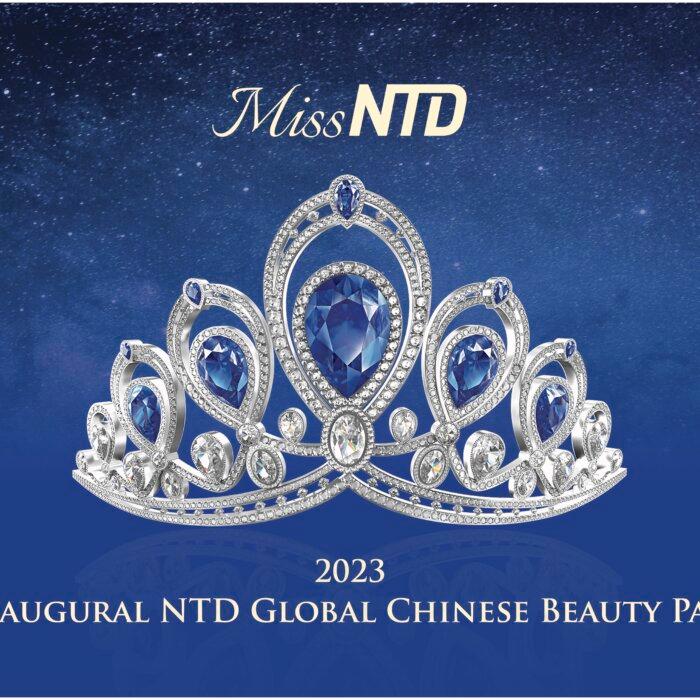The New Tang Dynasty (NTD) Global Chinese Beauty Pageant combines beauty with a higher purpose through its mission to educate young Chinese women about their heritage.
In its first year, the pageant has invited young women from all nations between ages 18–30, who are of at least one-third Chinese origin and fluent in either Mandarin or English, to participate. It aims to instill in them ancient Chinese values and celebrate the pure, authentic beauty of the Chinese woman.
Recently, two Miss NTD Honorary Advisory Board members spoke about the uniqueness of the NTD Global Chinese Beauty Pageant.
“I love that it is about traditions,” Jacqui Phillips, author and celebrity make-up artist, said in an NTD interview. “We’re losing traditions in this world, and they are so important. Having that inner wisdom and trusting that—and kindness—all those things set this pageant apart. I don’t think there’s anything like it in the world.”
“It is a beauty pageant that goes beyond beauty,” said Pageant Advisor Aleksander Janik, a senior client adviser in the luxury retail sector and a global celebrity stylist.
“This is a new generation. I really want to see them, not just the outside, but I love to see more inside, really deep in,” Janik said. “We look at not just the beauty but the intelligence, wisdom, and knowledge. I want to see them growing to show new generations it’s not just beauty, but so much they can offer.”
Like other major pageants, participants are eligible to win a valuable prize package including $10,000; the Heavenly Phoenix necklace and earring set; designer dresses; a collection of gifts; and the honor of wearing the official and Miss NTD phoenix crown, a beautiful sapphire tiara, for a year.
Participants in the grand finals and coronation will also gain worldwide exposure. The events will be televised to millions of viewers and receive additional promotion and coverage through NTD TV and online platforms as well as The Epoch Times.
All participants will gain a deeper appreciation for the five essential inner virtues—morality, righteousness, propriety, benevolence, and faithfulness—values that serve individuals beautifully in the natural course of a beauty pageant. The distinctive design of the phoenix crown symbolizes the five virtues.
At the live pageant, from Sept. 24 to Oct. 1, judges will consider four categories: an interview with judges; on-stage questions and answers; dancewear to showcase fitness, poise, and posture; and an evening gown. Those who choose may also compete in the optional performing arts categories of creative, singing, or dancing, either classical Chinese or ballet.
The live event will be held at the Performing Arts Center at Purchase College in Harrison, New York.
But before that, participants must pass the online audition phase, which involves an online interview with the selection committee, a video evening gown presentation, a “Beauty with a Mission” video project highlighting a topic on the significance of women to the family, society, and the continuation of civilization, a speech, and a comprehensive personal biography.
Judges will be looking for inward beauty and confidence.
“Using your words kindly and positively can make you the most beautiful person in the world,” Phillips said.
Another brother, Ban Chao, was an envoy to the Western Regions and had lived outside the Great Wall for a long time. But at age 70, he wanted to return to the Central Plains Region. Ban Zhao wrote to the emperor and requested on behalf of her brother. Her sincere words helped Ban Chao return home smoothly. Her brother Ban Gu started to write the “Book of Han” but died before completing it. Ban Zhao inherited her brother’s will and completed the remaining parts.
She wrote seven chapters of “Precepts for Women” to promote women’s virtue. She believed that women’s most important virtues are humility and meekness and that women should handle the relationships between all parties in their husband’s families. She put forward specific requirements for women in four areas: virtue, speech, appearance, and work.
“Precepts for Women” later became a textbook for women’s moral education in ancient times and largely shaped traditional Chinese women’s moral character.
Ban Zhao’s writings can still be found and read today.








